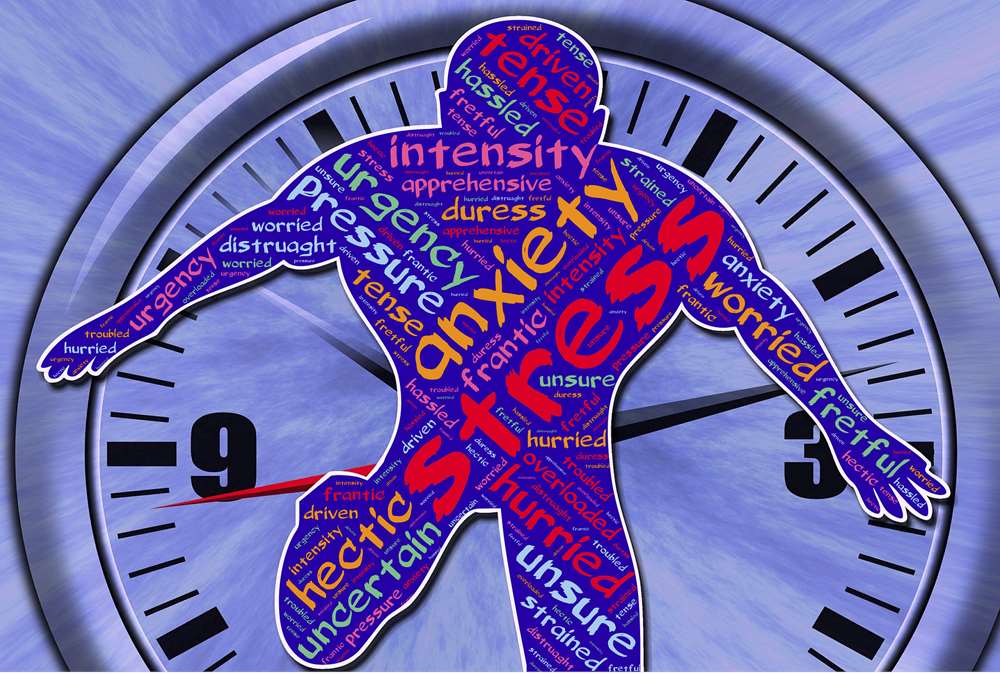- Home
- Business Processes
- Industry Knowledge
- Aerospace Industry
- Automotive Industry
- Banking Domain
- BFSI Industry
- Consumer/ FMCG Industry
- Chemicals Industry
- Engineering & Construction
- Energy Industry
- Education Domain
- Finance Domain
- Hospitality Domain
- Healthcare Industry
- Insurance Domain
- Retail Industry
- Travel and Tourism Domain
- Telecom Industry
- Leadership Skills
- eLearning
- Home
- Leadership
- Team Leadership
- Coping With Work Stress
Coping With Work Stress
Evidence of the medically damaging symptoms of work stress necessitates applying the treatment of stress management. Stress management is increasingly drawing the attention to the management experts not only as a remedial measure but also as a way to resource management. If the workplace can be made a little more lovable the increase in the achievement of the organization may be much time more. If group stress can be removed by introducing group discussions and recreational facilities a long-lasting team spirit may get developed.
Techniques of Stress Management
The techniques of stress management range from simple techniques like using self-help to deal with Stress to more elaborate ones where you involve others and take their help. It is already stated that high levels of stress or even low levels of stress sustained over a long period of time can impair employee performance, and thus requires action by management.
1. Problem-Focused Coping
This technique involves planned actions to bring about a change in the stressful conditions by acting on the environment or on oneself. Some of the strategies used in this type of coping are active coping (where the individual actively attempts to remove a stressful situation), planning, confrontational coping, and suppression of competing activities.
2. Emotion-Focused Coping
This technique involves attempting to reduce the emotional distress associated with a stressful situation without actively trying to change the situation itself. This could include acceptance of reality, positive reinterpretation, searching for alternative awards, tension reduction, wishful thinking, and denial. Based on these approaches, there are several techniques for stress management. Before we discuss the techniques, let us see why different people deal with stress in different ways.
3. Employee assistance programs (EAPs);
The first of forms of stress management practice is employee assistance programs (EAPs) which refers to the provision of employee counseling services by an organization. The forerunner of EAPs was the counseling program undertaken at the Hawthorne Works of the Western Electric Company in Chicago in 1936 with a single counselor and ended in 1956 with five counselors. EAPs take a holistic view of the employee so that he or she can seek advice on almost any issue. It can enable employees to have easy access to trained counselors getting personal insight and practical solutions.
4. Stress Management Training
Stress management training (SMT) refers to training courses designed to provide employees with improved coping skills, including training in techniques such as meditation, biofeedback, muscle relaxation, and stress inoculation. This method which has grown in popularity in recent years is designed to relieve tensions and reduce frustrations. By helping their employees to learn Stress Management skills, organizations promote workforces who are committed to being effective copers, the definition of which is directly related to their job performance. Through an introduction to stress concepts, the employee is taught to be wary of getting stressed.
5. Stress Intervention
More or less explicit feeling rules are made and generally, they are already part of some professionals, especially helpers. For example, police officials are taught and trained to curb their anger when under provocation, and doctors are supposed to react coolly and dispassionately to whatever ailments their patients bring. Indeed, the fact of being professional has come to imply a set of rules about doing a job at an emotional distance from the customer or customer with heavy sanctions against getting "too personally involved." That is the theory. However, some feeling rules are likely to be highly resistant to change.
6. Individual Strategies to Cope with Stress
Individual approaches or strategies that have been found quite effective in reducing stress include implementing time management and delegation techniques, increasing physical exercise and practicing deep breathing and relaxation skills, and expanding the social support network. Studies have revealed that Yoga has cured or helped control several stress-related diseases - reducing blood pressure, controlling asthma, and neuroticism. Employees should first help themselves, and others to review their relationship with their jobs regularly. They may in the process, identify such routines and practices which appear to trigger stress change what you can work realistically with what you can't.
7. Organizational Strategies for Stress Management
A few contributors to stress arise from organizational structure and management. Organizational strategies that have proved effective include improved personnel selection and job placement, the use of realistic goal setting, redesigning jobs, increased employee involvement, improved organizational communication, and establishment of wellness programs.
It is seen that individuals with little experience tend to be more liable to stress. While management should not restrict hiring only experienced individuals with an internal locus, such individuals may adapt better to high-stress jobs and perform those jobs more effectively. Similarly, individuals perform better when they have specific and challenging goals and receive feedback on how well they are progressing toward these goals. The use of goals can reduce stress as well as provide motivation.
Management should also consider redesigning of jobs. This gives employees more responsibility, more meaningful work, more autonomy, and increased feedback and can reduce stress because these factors give the employee greater control over work activities and lessen dependence on others. Therefore an organization should establish a strategy for managing stress as part of an employee health and performance improvement policy.
Related Links
You May Also Like
-
How often do you have a plan for how you are going to spend your day but you aren't able to complete the tasks on your plan because of unimportant tasks, interruptions, or your own procrastination? Wouldn't it be great to be able to manage your schedule and your time while avoiding, or at least controlling, these time stealers? Learn the strategies to manage your schedule while still handling interruptions and demands on your time.
-
Time management is the process of planning and exercising conscious control of time spent on specific activities, especially to increase effectiveness, efficiency, and productivity. The best time management techniques improve the ways you work. Time management refers to managing time effectively so that the right time is allocated to the right activity. Learn more about the five steps for effective time management viz. study, identify, analyze, decide, and implement.
-
Reasons behind Wastage of Time
Under-utilization of time may be due to the faulty system or faults of manager/officer/leader or due to lack of planning. There could be many factors driving the procrastination behavior like system issues, personal work habits, and lack of delegation, personality traits, and bad working habits of the leader, failure to tackle interpersonal conflicts, obstacles, and lack of far-sightedness.
-
Tips for Effective Time Management
After studying and analyzing how time is spent, why time is wasted, and where time is wasted you need to decide about the changes required for effective utilization of time. For this purpose, a large number of remedial measures can be taken by you. The first and foremost determinant of a planned and purposeful utilization of time is to develop consciousness of the value of time at all levels of the organization. Planning, goal setting, and defining priorities are concerns to addressed immediately.
-
The best career choices are ones that match your values. Each person has several values that are important to him. These values are highly personal and knowing them provides a clearer sense of what's most important to you in your life and career. Career values are the beliefs you consider important from a work standpoint. Values help you understand what you want from a job? Explore a few examples of work values that can influence career path and job satisfaction.
-
Authentic leadership is an approach to leadership that emphasizes building the leader's legitimacy through honest relationships with followers which value their input and are built on an ethical foundation. The authentic leader acts upon his or her values and beliefs, and inspires others to do the same, is committed to know and develop oneself. Are you committed to developing yourself; know your motivations and the purpose of your leadership? Read this article to know more about authentic leadership style and discovering your authentic self.
-
Concept & Definition of Stress
Stress is a popular expression used by people in day to day life. Pressures of day to day living sometimes necessitate coping or dealing with them and stretch the body beyond its natural capacity. They are called stressors. Stress is a natural, ongoing dynamic, and interactive process that takes place as people adjust to their environment.
-
A manager or an employee in an organization who is experiencing a high level of stress may develop high blood pressure, ulcers, irritability, difficulty in making routine decisions, loss of appetite, accident proneness, and the like. These can be subsumed under three general categories, physiological, psychological, and behavioral symptoms. Stress can give rise to a number of changes.
-
Evidence of the medically damaging symptoms of work stress necessitates applying the treatment of stress management. Stress management is increasingly drawing the attention to the management experts not only as a remedial measure but also as a way to resource management. If the workplace can be made a little more lovable the increase in the achievement of the organization may be much time more. If group stress can be removed by introducing group discussions and recreational facilities a long-lasting team spirit may get developed.
-
Crisis leadership is a very important part of leading in today's world. The skills a leader needs in order to guide people during a crisis are different from the skills needed to help a group grow. Are you a good crisis leader? What is your leadership style in case of a business crisis situation? A business crisis can test the strongest of leaders, read this article to explore how to ensure you’re ready to take action and weather the storm when one strikes you.
Explore Our Free Training Articles or
Sign Up to Start With Our eLearning Courses

About Us
Learning
© 2023 TechnoFunc, All Rights Reserved










